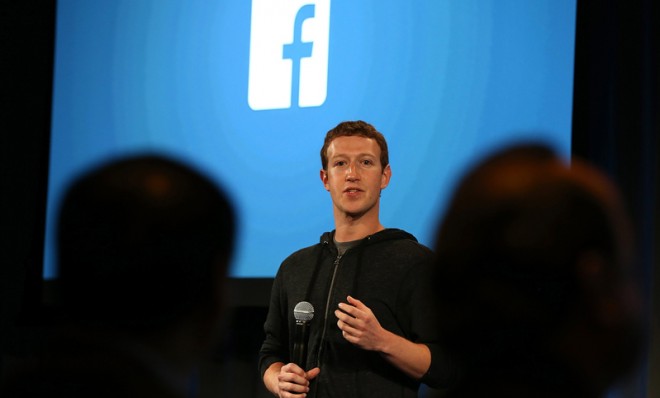Silicon Valley's take on immigration
Leaders in technology are pushing for a more generous immigration policy for gifted foreigners

U.S. immigration policy is "unfit for today's world," said Facebook CEO Mark Zuckerberg in The Washington Post. In our knowledge economy, the "most important resources are the talented people we educate and attract to our country." Yet our current system squanders them. After we educate the non-citizens who make up more than 40 percent of our math and science graduate students, we kick them out. Instead of encouraging gifted foreigners to come and create jobs, we offer so few H-1B visas for talented specialists that "the supply runs out within days of becoming available each year." To lead the world, we need to attract smart people who work hard, and to do that we need "a new approach" to immigration. That's why I'm joining with other leaders of the technology community to form FWD.us, an organization that will push both political parties to adopt the immigration policies we need "to ensure more jobs, innovation, and investment."
"Zuckerberg is right," says Andrew Marder at the Motley Fool. The U.S. can start to make things better by giving out significantly more than the 65,000 H-1B visas it currently approves each year. These visas are needed by businesses seeking foreign employees who have "theoretical or technical expertise in specialized fields," such as scientists, engineers, or computer programmers. "The program is not designed to find employees who are smarter, faster, or generally better than American employees." It's only supposed to "increase the pool of skilled workers." Some claim even that hurts American workers, but unemployment in computer-related fields is currently between 3 and 4 percent. And critics forget that by giving out more H-1B visas, "we increase the overall output of the sector, and ensure that America maintains a strong position in the global tech industry." And that is good not just for Silicon Valley, but for "the economy as a whole."
I'm not buying, says Philip Bump at The Atlantic. Zuckerberg and his pals support only "a very specific kind of immigration reform" — the kind that helps their industry. In Silicon Valley, foreign workers in the tech and professional sectors — mostly from South Asia and China — make up just 31 percent of immigrant employees. The rest — mostly undocumented Latinos — work in the service industry, including, no doubt, at Facebook headquarters. Asian immigrants in Silicon Valley, on average, earn more than $60,000 per year, while most Latino workers earn less than $30,000. Years of strikes and protests have aimed to improve wages for janitors in Silicon Valley companies, where the "relationship with the immigrants that work on lower floors in their office buildings has not always been as friendly as with H-1B professionals."
The Week
Escape your echo chamber. Get the facts behind the news, plus analysis from multiple perspectives.

Sign up for The Week's Free Newsletters
From our morning news briefing to a weekly Good News Newsletter, get the best of The Week delivered directly to your inbox.
From our morning news briefing to a weekly Good News Newsletter, get the best of The Week delivered directly to your inbox.
Facebook's CEO has missed an opportunity here, says Brian Hall at ReadWrite.com. He and his tech industry cohorts "need to reach out to the rest of the country and demonstrate how what's good for Silicon Valley is good for America." These companies could be working a lot harder to "welcome and then train America's older engineers to code for Facebook and other Valley companies." Or they could push for broader immigration reform, as Steve Jobs's widow, Laurene Powell, has done. Until Zuckerberg and friends strengthen and broaden their case for immigration reform, their initiative sounds an awful lot like "another corporate lobbying effort."
A free daily email with the biggest news stories of the day – and the best features from TheWeek.com
Sergio Hernandez is business editor of The Week's print edition. He has previously worked for The Daily, ProPublica, the Village Voice, and Gawker.
-
 High Court action over Cape Verde tourist deaths
High Court action over Cape Verde tourist deathsThe Explainer Holidaymakers sue TUI after gastric illness outbreaks linked to six British deaths
-
 The battle over the Irish language in Northern Ireland
The battle over the Irish language in Northern IrelandUnder the Radar Popularity is soaring across Northern Ireland, but dual-language sign policies agitate division as unionists accuse nationalists of cultural erosion
-
 Villa Treville Positano: a glamorous sanctuary on the Amalfi Coast
Villa Treville Positano: a glamorous sanctuary on the Amalfi CoastThe Week Recommends Franco Zeffirelli’s former private estate is now one of Italy’s most exclusive hotels